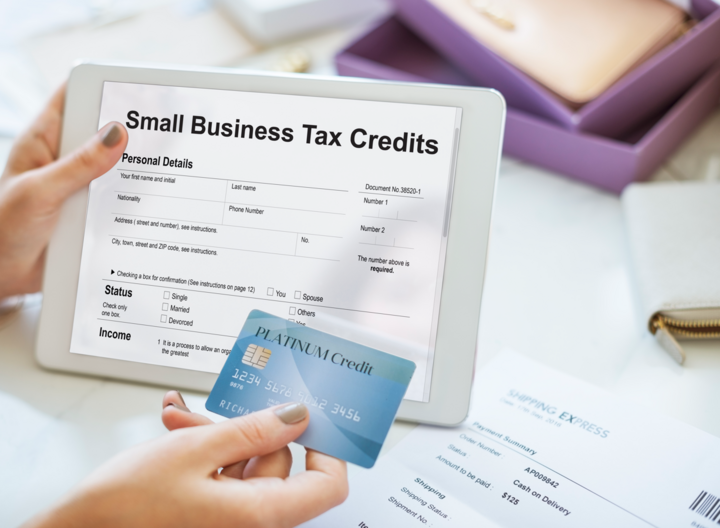Running a small business isn’t easy, especially when money is tight. You’ve got orders to fill, bills to pay, and big goals that always seem just out of reach. Business credit can make a huge difference. It gives you access to flexible funding, helps you manage cash flow, and opens doors to better terms with lenders and vendors.
But many business owners unknowingly hurt their chances of getting approved for the funding they need. Mixing personal and business expenses, making late payments, or applying for the wrong cards can quietly damage your credit profile. These small missteps often get overlooked, but they can make it harder to qualify for the kind of high-limit, low-interest credit you need for your business.
If you want to avoid the most common traps and build strong business credit the right way, this guide is for you.
Why Is Business Credit Important?
Your business has its own credit score, separate from your personal one. It’s linked to your EIN and tracked by credit bureaus like Equifax, Experian, and Dun & Bradstreet. Lenders, banks, and even suppliers use it to decide whether your business is financially trustworthy.
When your credit is in good shape, it’s easier to access funding, especially when your business is growing. You can use business credit to hire new staff, buy inventory, upgrade equipment, or fund a startup. For everyday expenses, a business credit card can help you manage cash flow.
For bigger projects, a line of credit might make more sense.
Strong business credit also helps protect your personal finances. Instead of leaning on personal credit cards or risking your own assets, you’re building financial strength under your business name. That’s a smart move, especially if you’re planning for long-term growth.
How to Use Business Credit Cards Responsibly
Business credit cards can be powerful tools if used properly. The key is to treat them like a financial strategy, not a backup plan.
Start by keeping your business and personal expenses completely separate. This will help you stay organized and protect your personal credit. Always make your payments on time, and whenever possible, pay off the full balance. This will show lenders that your business is reliable and help you avoid interest charges.
Try not to max out your cards. Keeping your credit utilization low, ideally under 30%, can improve your credit score over time. It also signals to lenders that you’re not overextended.
Track your spending closely. Set up reminders or autopay so you don’t miss due dates. Review your statements each month to catch errors, fraud, or unexpected fees. And avoid opening too many cards at once. One or two well-managed accounts are better than several that are hard to track.
Used wisely, business credit cards can help your business stay flexible, build credit, and qualify for larger funding in the future.
7 Common Business Credit Card Mistakes to Avoid
Here are some of the most common missteps that can quietly damage your business credit profile.
Mixing Personal and Business Finances
It’s tempting to swipe whichever card is available, especially when things get busy. But mixing personal and business expenses creates confusion when it’s time to track spending, file taxes, or apply for funding. It also puts your personal credit at risk if you default on a business charge.
What to do instead:
Use your business credit card strictly for business-related expenses. Set up separate bank accounts and accounting tools for your business so you can easily track everything.
Paying Late or Missing Payments
Late payments don’t just cost you late fees—they also hurt your business credit score. Credit bureaus track how often you pay on time, and even one late payment can send a negative signal to lenders and vendors.
What to do instead:
Set up calendar reminders, email alerts, or autopay for at least the minimum due. But aim to pay your full balance by the due date. If cash flow is tight, communicate with your lender early and try to work out a short-term arrangement before you fall behind.
Maxing Out Credit Limits
Using most or all of your available credit, also known as high utilization, can bring down your business credit score, even if you make payments on time. Lenders see it as a sign that your business may be struggling to stay afloat.
What to do instead:
Try to keep your credit usage under 30% of your total available limit. If your limit is $20,000, try not to carry a balance above $6,000. If you’re spending more than that each month, consider paying your card more than once per billing cycle or requesting a higher credit limit.
Applying for Too Many Cards at Once
Each time you apply for credit, it creates a hard inquiry on your credit report. Too many inquiries within a few months can lower your score and make lenders think you’re in financial trouble.
What to do instead:
Be strategic. Only apply for new credit when you have a clear reason, like needing more capital to scale. Contact Fund&Grow to learn how we can help you navigate the process with minimal impact on your personal credit.
Only Making Minimum Payments
Paying just the minimum might keep your account from going into default, but it also traps you in long-term debt. You’ll pay far more in interest, and it may take years to pay off your balance.
What to do instead:
Always aim to pay off the full balance by the due date. If that’s not possible, pay as much as you can above the minimum. Reducing your balance quickly helps boost your credit and lowers your interest costs.
Not Reviewing Statements and Terms
It’s easy to miss changes in your interest rate, new fees, or unauthorized charges if you don’t read your statements. Some business owners go months without realizing they’ve been overpaying or getting hit with extra charges.
What to do instead:
Review your statement every month, even if you’re using autopay. Check for errors, hidden fees, or unexpected interest charges. Also, pay attention to any changes in terms sent via email or mail from your card issuer.
Choosing Cards That Don’t Report to Business Credit Bureaus
Not all business credit cards help you build credit. Some only report to personal credit bureaus, which means your on-time payments and good usage habits won’t strengthen your business profile.
What to do instead:
Before applying, confirm whether the card reports to business bureaus like Dun & Bradstreet, Experian Business, or Equifax Business. If it doesn’t, consider other options—especially if your goal is to grow your business credit and qualify for more funding in the future.
Avoid Costly Mistakes and Get the Funding You Deserve
Lenders, vendors, and financial institutions look at your business credit to decide how much they trust your company. A strong credit profile makes it easier to get approved for higher limits, better terms, and more flexible funding.
Most business owners don’t damage their credit on purpose. It usually starts with small habits like using the wrong card, missing a payment, or applying for multiple accounts without a clear plan.
At Fund&Grow, we help you avoid those setbacks. Our team works with business owners to build better credit and access up to $250,000 in 0% interest business credit cards. If you’ve made some of the mistakes we covered earlier, you’re not alone, and you’re not stuck. With the right approach, you can rebuild and move forward with confidence.
Contact us now to get started!
Frequently Asked Questions
Can I get business credit if my business is new or has no revenue yet?
Yes, you can. Many lenders and credit issuers offer options for new businesses, especially if you have strong personal credit. At Fund & Grow, we help early-stage business owners access credit based on a combination of personal credit history and strategic business setup—even if the business hasn’t generated revenue yet.
Will checking my business credit hurt my score?
No. Checking your own business credit is considered a “soft inquiry” and has no impact on your score. In fact, regularly reviewing your reports from Dun & Bradstreet, Experian Business, or Equifax Business can help you catch errors early and spot opportunities to improve your credit profile.
Do I need an LLC or corporation to build business credit?
It’s strongly recommended. Having a legal business structure like an LLC or corporation separates your personal finances from your business and allows you to get an EIN, which is essential for building business credit. Sole proprietors can still apply for credit, but they often miss out on the full benefits and protections of a separate business entity.
 About the Author:
About the Author:
Ari Page is the Founder and CEO of Fund&Grow, helping entrepreneurs, investors, and small business owners secure $50,000–$250,000 in 0% interest business credit cards. Since 2007, he has grown Fund&Grow into an Inc. 5000 company, securing nearly $2 billion in business credit cards for thousands of clients. With 6,000+ 4.9-star reviews and an A+ BBB rating, Fund&Grow is a trusted leader in business funding. Ari is also the author of Fund&Grow: Easy & Affordable Ways to Get Money for Your Business and a passionate advocate for mindset, success, and the Law of Attraction. He lives in Spring Hill, FL, inspiring others to grow their businesses and achieve financial freedom.
Popular Posts
Instantly Pre-Qualify
Want Actionable Information, Tools and Resources To Quickly Acquire Business Capital, Credit and Funding?
I take tremendous pride in building positive and lasting relationships in my businesses and personal life. Every member of my team is committed to helping our clients get the maximum amount of funding possible and achieve their highest growth potential.



 Share
Share









